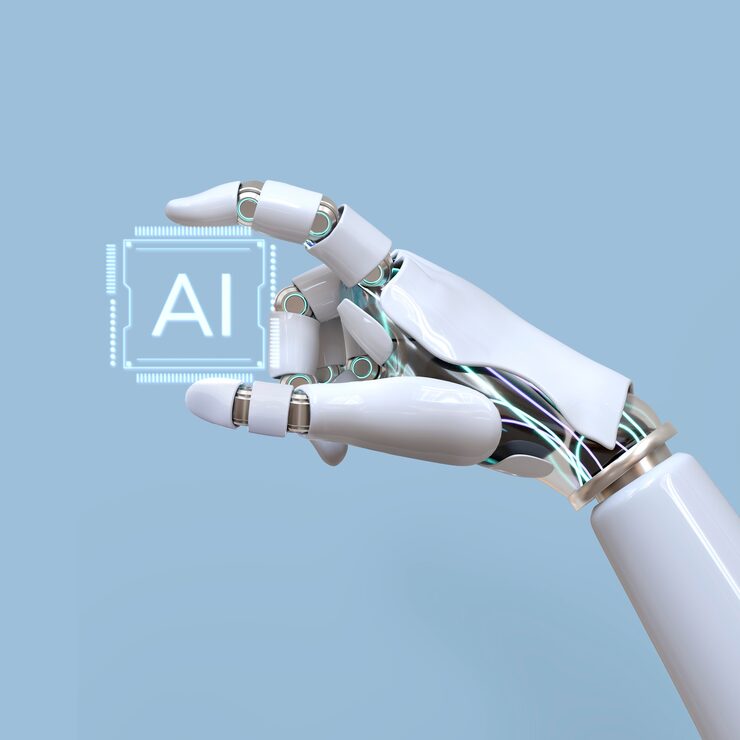AI Meets Law: How Artificial Intelligence is Disrupting Legal Processes
Artificial Intelligence is quickly transforming industries across the globe, and the legal sector is no exception. AI’s integration into the legal field is reshaping how lawyers, law firms, and courts operate by automating routine tasks, predicting case outcomes, and personalizing legal services. This disruption is not just about technology; it’s about creating a more efficient, cost-effective, and accessible legal process. Let’s explore how Artificial Intelligence is impacting the legal world and what it means for the future of law.
AI in Legal Research and Document Review
Legal research and document review have traditionally been time-consuming tasks. AI-driven tools like ROSS Intelligence and Westlaw Edge can instantly search vast databases of legal documents, case law, and statutes to find the most relevant information. By doing so, these AI tools provide lawyers with faster and more accurate results, significantly reducing research time.
AI also plays a pivotal role in document review. In complex cases involving thousands of documents, AI can quickly scan and analyze contracts, emails, and other legal materials. It can identify key clauses, highlight inconsistencies, and flag potential legal issues, which reduces human error and improves accuracy. This is especially valuable in large-scale litigation or mergers and acquisitions, where document review can otherwise take months.
Predicting Legal Outcomes with AI
One of the most fascinating applications of AI in law is predictive analytics. By analyzing historical data and case precedents, AI can forecast the likely outcome of a case. AI tools like Lex Machina and Premonition provide lawyers with data-driven insights about the likelihood of success in court. This allows lawyers to tailor their strategies and manage client expectations more effectively.
For instance, AI can predict how a judge might rule on certain issues or estimate the success rate of different legal arguments. By using AI, lawyers can make more informed decisions and optimize their legal strategies, saving time and improving client outcomes.

Contract Management and Legal Drafting
AI is also making a significant impact on contract management and legal drafting. AI tools can assist in creating contracts by automating the drafting process based on pre-existing templates. These tools not only save time but also ensure consistency and reduce the likelihood of errors. AI can also review contracts for compliance, check for potential risks, and highlight clauses that need to be negotiated, making the process more efficient and accurate.
Moreover, AI-powered platforms can track contract deadlines, renewals, and compliance, alerting legal teams when action is required. This reduces the risk of costly mistakes due to missed deadlines or non-compliance.
AI in Making Legal Services More Accessible
Beyond enhancing efficiency, AI is also helping to make legal services more accessible. Many people face barriers to legal representation due to high costs. AI-powered tools like chatbots, such as DoNotPay, are helping bridge this gap by providing free legal assistance. These chatbots can guide users through processes like contesting a parking ticket or filing small claims, offering basic legal advice that was once only available through expensive legal consultations.
By democratizing legal advice, AI is ensuring that more individuals have access to justice, even without the financial resources to hire traditional legal services.
Ethical Considerations and the Future of AI in Law
While AI presents numerous benefits, it also raises ethical questions, particularly regarding data privacy and bias. AI systems are only as good as the data they are trained on, and biased data can lead to biased outcomes. Legal professionals and regulators must ensure that AI tools are transparent, fair, and used responsibly.
Looking forward, AI will continue to transform the legal landscape. As AI technology evolves, it will further enhance the way lawyers operate, making legal processes faster, more efficient, and more accessible for everyone.
Conclusion
Artificial Intelligence is revolutionizing the legal industry by automating routine tasks, improving accuracy, and enhancing access to legal services. From legal research and document review to predicting case outcomes and managing contracts, AI is providing lawyers with powerful tools to improve their practice. As AI continues to evolve, it will undoubtedly play a larger role in shaping the future of law, making the legal process more efficient, cost-effective, and accessible for all.
